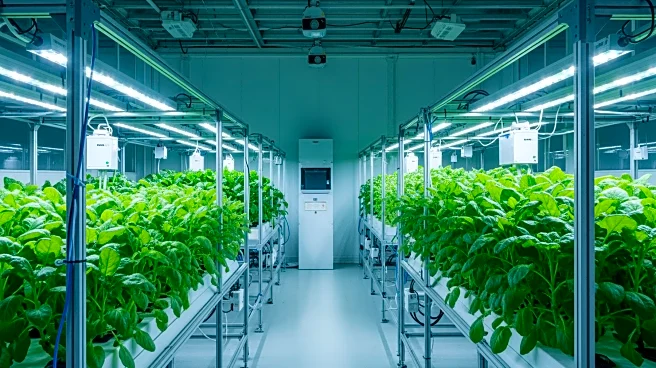What's Happening?
The Inter-American Institute for Cooperation on Agriculture (IICA) has officially opened the Home of Sustainable Agriculture of the Americas pavilion at COP30 in northern Brazil. The pavilion, located in the AgriZone established by the Brazilian Agricultural
Research Corporation (EMBRAPA), aims to showcase innovation in agriculture and discuss new policies to accelerate sustainable transformation. The opening event featured speeches from Manuel Otero, Director General of IICA, and other key figures in the agriculture sector. The pavilion will host events until November 21, focusing on topics such as family farming, innovation, digital technologies, and the bioeconomy.
Why It's Important?
The opening of the pavilion at COP30 highlights the critical role of agriculture in climate negotiations and global food security. By prioritizing agriculture in climate discussions, IICA aims to position farmers as key players in achieving environmental sustainability. The pavilion serves as a platform to demonstrate the positive transformation of agriculture in the Americas, emphasizing the importance of innovation, science, and technology in driving sustainable practices.
What's Next?
IICA and its partners will continue to host events at the pavilion, fostering discussions on sustainable agriculture and the integration of new technologies. The Hemispheric Partnership for Food Security in the Americas will be a focal point, showcasing high-impact initiatives and encouraging collaboration among stakeholders. The pavilion is expected to strengthen ties between IICA and the private sector, promoting investment in sustainable agricultural practices.
Beyond the Headlines
The initiative underscores the need for a new narrative in agriculture that aligns with global sustainability goals. It highlights the potential for agriculture to contribute to biodiversity protection and peace, while also addressing challenges such as food security and climate change. The pavilion represents a shift towards more strategic policies and cooperation in the agriculture sector.















